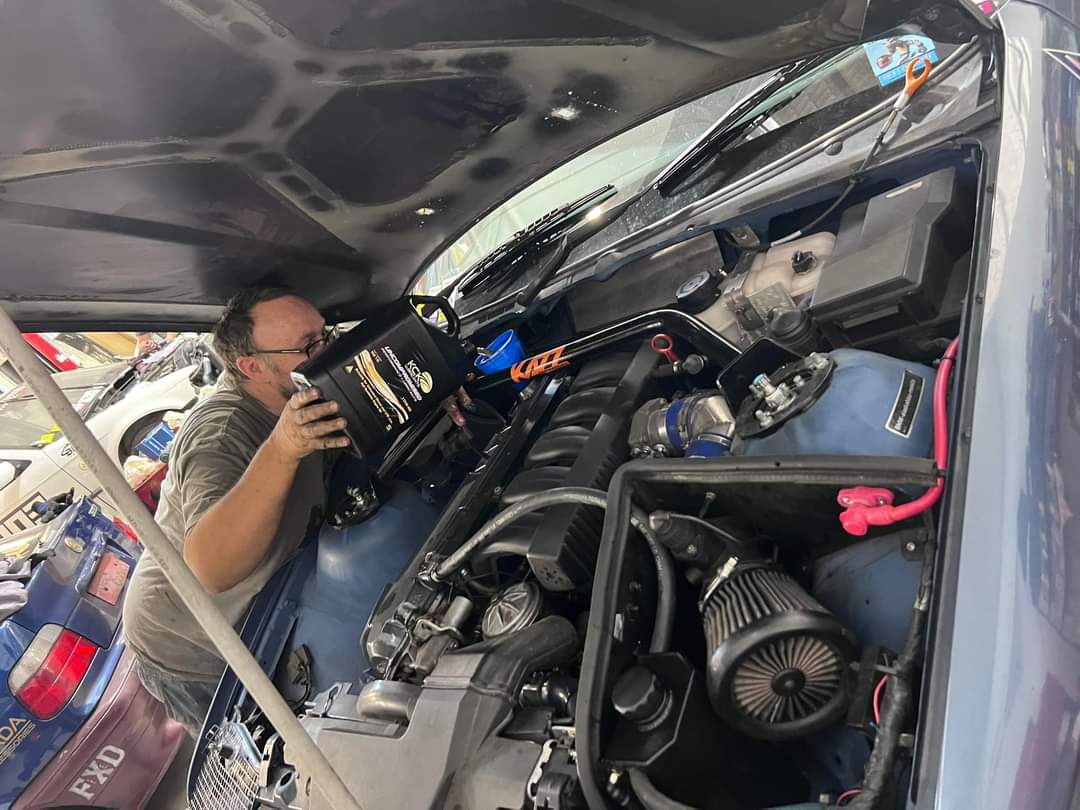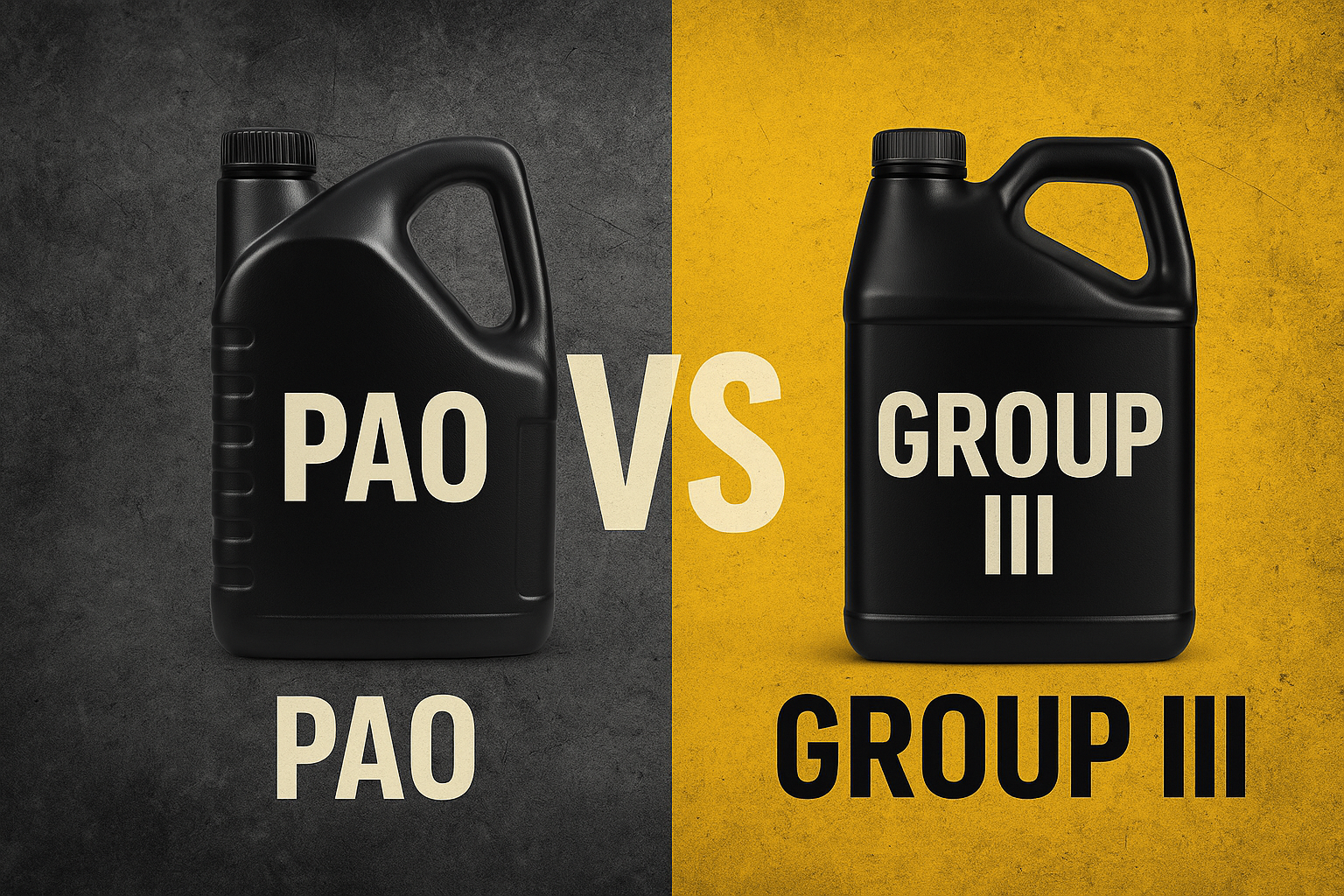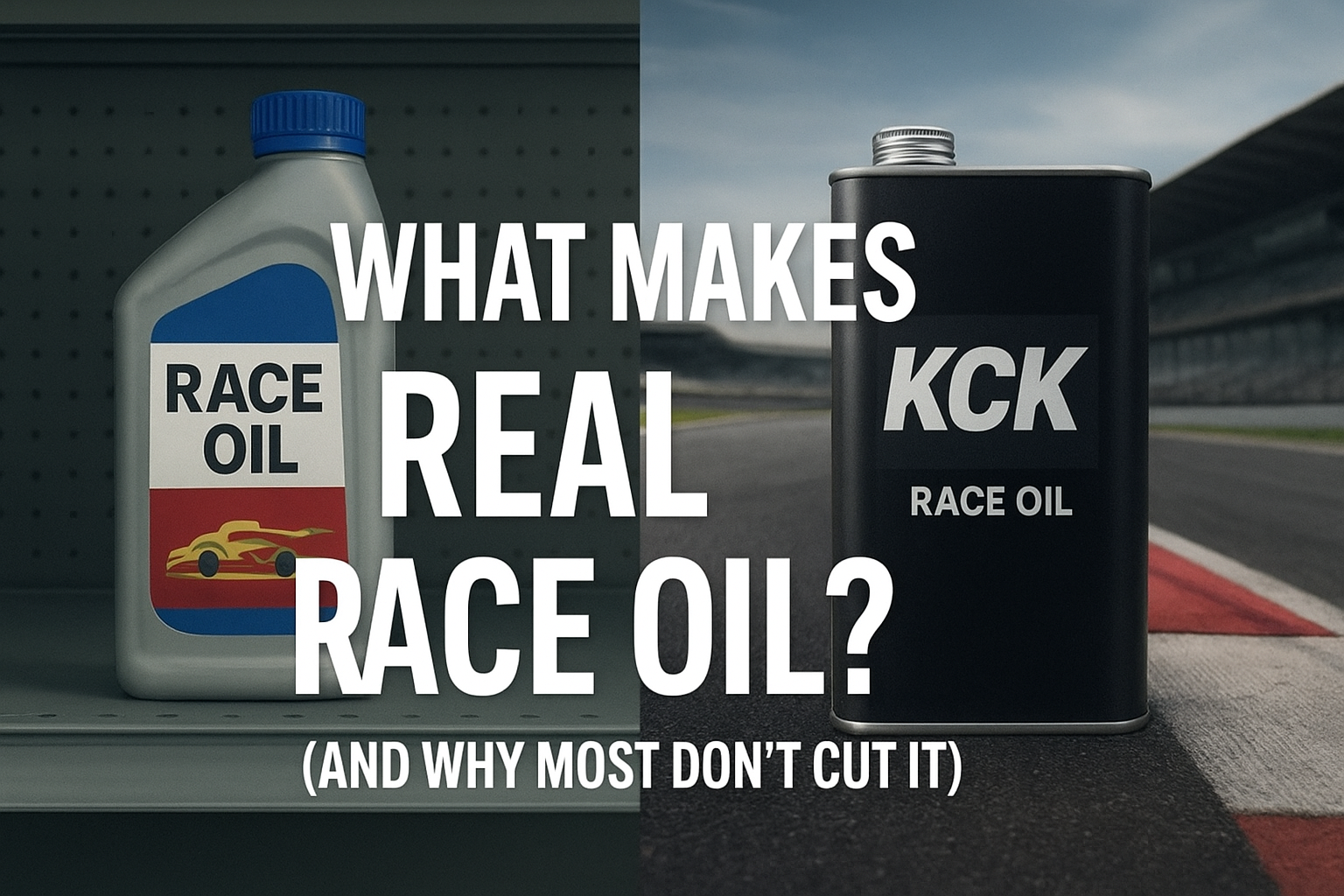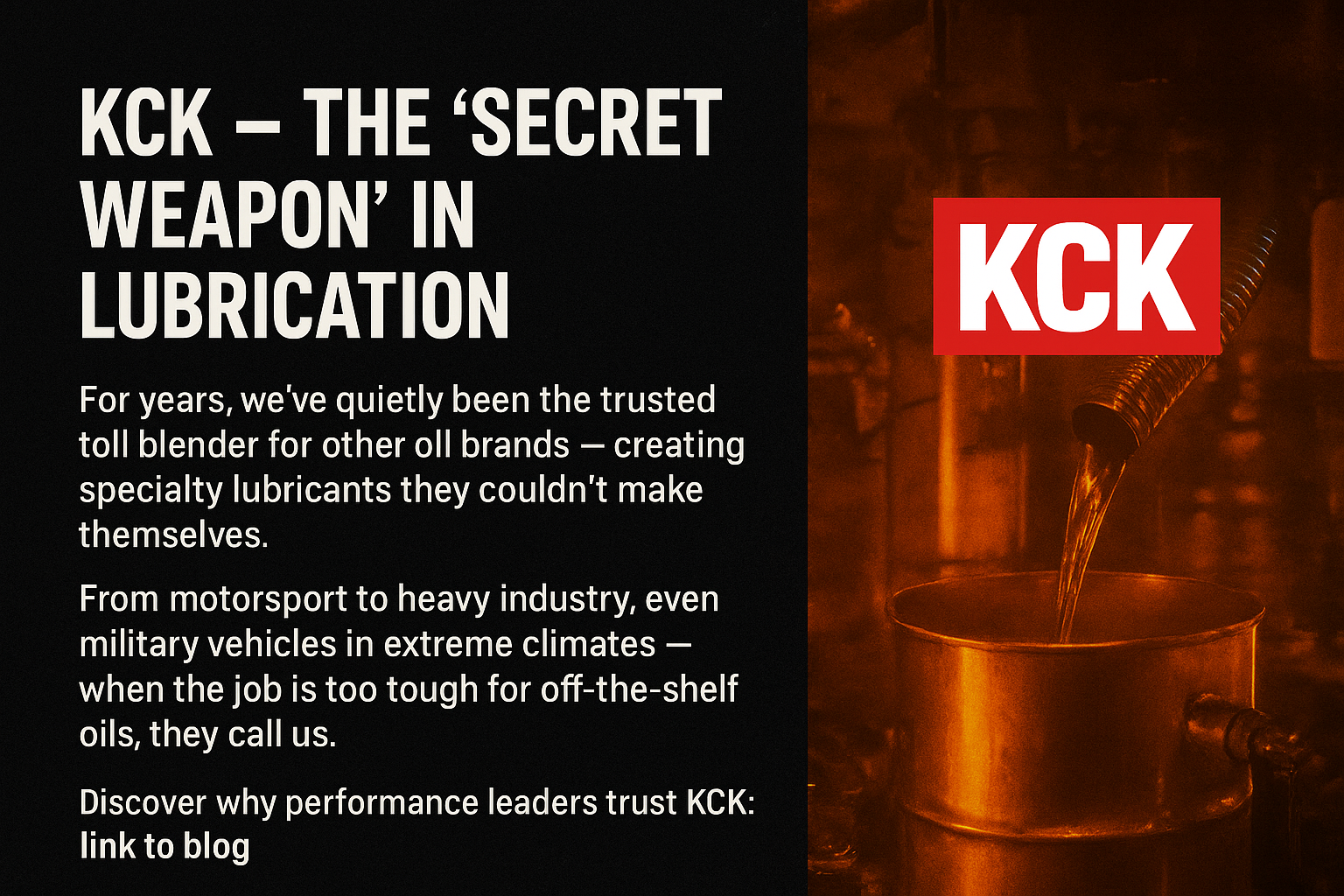Not All Race Oils Are Created Equal: Inside the Chemistry of Performance
In racing, there’s no hiding from the truth. Your oil either holds up—or it doesn’t. And when it doesn’t, you’ll see it where it hurts most: on the gauge, in the teardown, or in your lap times.
Plenty of oils talk a big game. Slick branding. Synthetic labels. Race car pictures. But when the green flag drops and the heat cranks up, the difference between a brochure blend and a race-built lubricant becomes painfully clear.
Real-World Pressure Failures
We’ve had multiple engine builders and race teams come to us after experiencing severe pressure drops with leading 15W-50 race oils. In some cases, oil pressure collapsed within a single race.
Same engine. Same event. Switch to KCK and the pressure stays rock solid. No shear. No loss of grade. No surprises.
Why? Because chemistry doesn’t lie.
The Chemistry That Matters
Here’s a hard look at what’s actually inside the bottle.
| Additive | Market-Leading 15W-50 | KCK RE15 | Why It Matters |
|---|---|---|---|
| Zinc (ZDDP) | ~1600ppm | 2400ppm | High-pressure anti-wear. Flat tappets, high RPM, race loads—ZDDP is king. |
| Boron | ~630ppm | 184ppm | Boron is a secondary dispersant/friction mod—helpful, but not magic. |
| Calcium | ~290ppm | 770ppm | Critical for acid neutralisation, deposit control, and stable TBN. |
Note: Figures from independent analysis of publicly available data.
KCK RE15 isn’t just overloaded with additive—it’s engineered. High ZDDP for load, high calcium for longevity, and a balanced, thermally stable profile that doesn’t fall apart mid-race.
Base Oil Reality Check
You might hear "PAO/Ester" thrown around in competitor marketing—but the reality behind the scenes is often different. Many of these oils lean heavily on Group III synthetics, boosted with esters just enough to legally use the term.
KCK RE15? It starts with high-grade virgin mineral base oil and finishes with a hot-blended process—a step most brands skip to save money.
Why hot blending matters:
-
Additives fully dissolve and activate — nothing settles or separates
-
Shear stability is superior — fewer viscosity index improvers to fail
-
Batch consistency — every drum performs like the last
Other oils talk about 'race spec' — RE15 lives there.
The Shear Truth: Viscosity Breakdown Kills
Many competitor 15W-50 oils rely on polymer-based viscosity modifiers. That’s fine in road cars, but when you’re running high cylinder pressure, fuel dilution, and 110+°C oil temps? Those modifiers start to shear and break down.
The result? Viscosity collapse. Oil pressure vanishes. Bearings suffer. Rings lose support.
KCK RE15 avoids that entirely by being built thick where it counts—with a base oil that doesn’t shear, and minimal reliance on fragile modifiers. That’s why pressure stays strong across an entire race meeting—not just the first heat.
Built for Racers, Not Shelf Appeal
This isn't about calling out other brands—it’s about being real with what your engine needs when it's on the limiter, under load, and up against the heat.
If your current oil drops pressure by the end of Race 1, it’s not keeping up.
If it smells cooked after a dyno pull, it’s not holding grade.
If you’re seeing wear where there shouldn’t be—your oil is the weak link.
The Final Word
Not all race oils are created equal. Some are designed in boardrooms. Others—like RE15—are built with input from real racers, engine builders, and thousands of laps of data.
So next time someone tells you all 15W-50s are the same, ask them one question:
How many podiums has yours survived?







